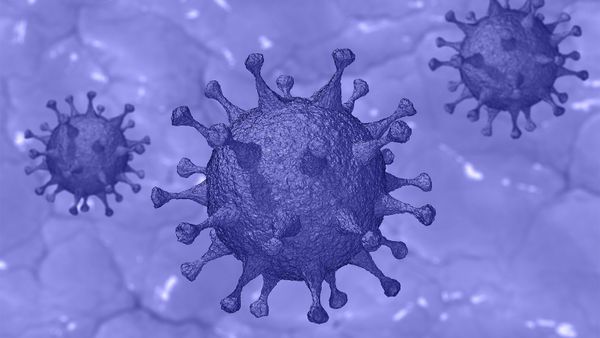After a virus first enters your body, it will incubate for a few days, during which you will experience no symptoms. The virus uses this period to infect healthy cells from the inside. Viruses tend to spread when an infected person’s bodily fluids make contact with a healthy person. These fluids can either be transmitted by air – via sneezing or coughing -- or simply left behind, as when an infected person touches a doorknob after wiping his or her nose.
Once the virus has completely taken over the healthy cells that it initially infected, these cells begin to die off. It’s at this point that the infection spreads inside the body and you begin to display symptoms of the virus. Viruses become most contagious during this period. While some symptoms are due to the virus, others are actually caused by the immune system’s reaction to the presences of a foreign invader in the body. Exhaustion and fever are common symptoms of the body’s reaction to a viral infection. After the virus has busted out of the dead cells it first attacked when entering the body, the immune system then becomes aware of this foreign presence. The immune system’s counterattack may take several days to unfold. As far as the flu goes, for example, it may take up to four days between the time that you’re exposed to the influenza virus and the first appearance of symptoms. In general, someone who catches a cold or flu becomes contagious approximately one day before symptoms begin to manifest. The contagious period of someone with the flu can last anywhere from five to seven days. Children who come down with the flu can experience symptoms for two weeks. A cold’s contagious period usually lasts up to four days.
Advertisement

